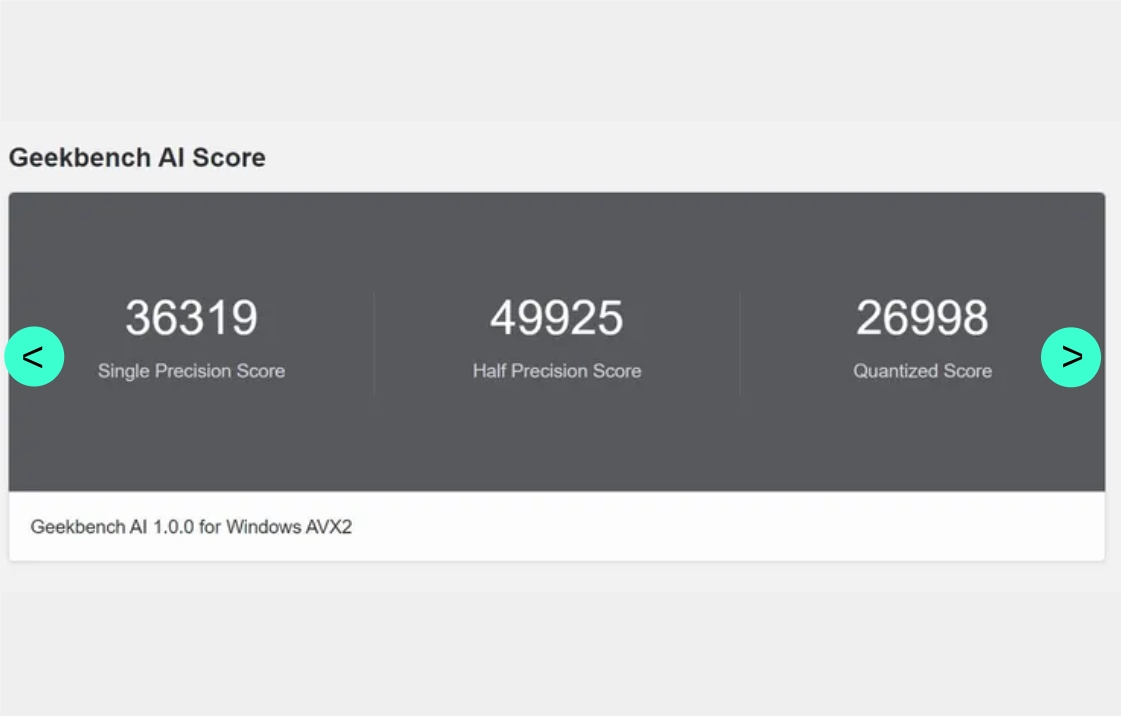Recently, the renowned benchmarking tool Geekbench released a new cross-platform tool specifically designed to evaluate device performance under AI-intensive workloads. This new tool, dubbed Geekbench AI, assesses the device's capability to handle machine learning applications by measuring its CPU, GPU, and NPU (Neural Processing Unit).
Previously, Geekbench's developer company, Primate Labs, had been developing the software under the name Geekbench ML, with a preview version released as early as 2021. To emphasize its AI-focused features, it has now been renamed Geekbench AI.
The operation of Geekbench AI involves evaluating the performance of different hardware on AI-related tasks, including accuracy and speed, to explore their capabilities. It also supports multiple frameworks such as ONNX, CoreML, TensorFlow Lite, and OpenVINO, allowing users to select an appropriate testing environment as needed. This tool provides three types of scores: full precision, half precision, and quantized scores. Additionally, Primate Labs indicates that the scores will be accompanied by an accuracy assessment, helping users understand the authenticity of workload outputs and the accuracy of model task execution.

With the continuous advancement of AI technology, we need more time to observe the performance of devices using on-device AI, such as Copilot Plus PCs and various new smartphones, in real-world scenarios. Previously, we might have focused on frame rates or loading times, but now, we might place greater emphasis on the accuracy of predictive text or the effectiveness of generative AI-supported image editors.
Users can download the Geekbench AI tool to try it out on platforms including Windows, macOS, Linux, Android, and iOS, to see how their devices perform in AI processing.
Key Points:
- 🖥️ Geekbench AI is a new benchmarking tool focused on evaluating device performance on AI tasks.
- ⚙️ It measures CPU, GPU, and NPU, and supports multiple machine learning frameworks, providing assessments of accuracy and speed.
- 📱 The tool is now available, allowing users to download and test their devices' AI processing capabilities across multiple platforms.
